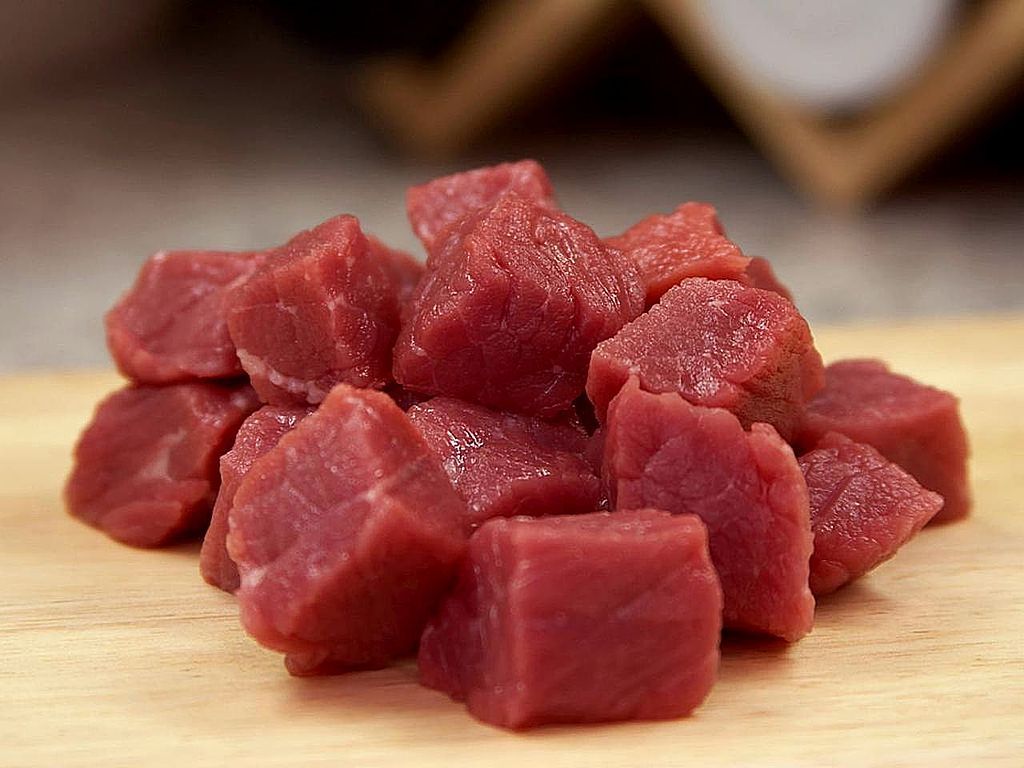Beyond Meat, the company that wants to “perfectly replace” animal protein with plant-based alternatives, is raising a Series E round of funding.
While the company would not disclose the target size of the round, SEC filings revealed that $17 million had already been raised from existing investor Obvious Ventures, which a spokesperson confirmed. Other existing investors include Closed Loop Capital, Kleiner Perkins Caufield & Byers, Bill Gates, and S2G Ventures
Alternative proteins have increasingly caught the attention of investors amid rising global concerns around food safety and security, and a growing awareness among consumers about where their food comes from. Agriculture’s contribution to greenhouse gas emissions is largely attributed to the livestock sector, and a 2006 report from the Food and Agriculture Organization ascribed some 14.5 percent of global GHG emissions to livestock production. So this is driving companies to look for more sustainable sources of protein.
The funding round comes hot on the heels of the $108 million Series D round from a similar plant-based alternative protein company Impossible Foods two weeks’ ago. The pre-revenue company is hoping to release its first product, the Impossible Burger, next year and has attracted investment from big names such as Bill Gates’ investment arm Cascade Ventures, Hong Kong billionaire Li Ka-Shing’s Horizon Ventures, and San Francisco giant Khosla Ventures. The latest funding round took the company’s total capital raising efforts to $183 million.
As this recent activity suggests, the alternative protein sector is growing and Beyond Meat is flanked by a series of other companies looking to replace everyday animal-based proteins. They include cultured animal product developer Modern Meadow, eggless mayonnaise manufacturer Hampton Creek Foods, animal-free milk producer Muufri, and Clara Foods, another egg alternatives company. Some of these companies have attracted the same investors such as Horizon Ventures and Khosla Ventures, which are both invested in Impossible Foods and Hampton Creek, and Bill Gates, who is invested in Beyond Meat and Impossible Foods.
Horizon Ventures has also backed Modern Meadows, alongside PayPal founder Peter Thiel’s Breakout Labs. Modern Meadows has raised over $11 million across three rounds. Using what it describes as pain-free biopsies from donor animals, the company taps tissue engineering techniques to grow—or “brew”—meat, fish, poultry, and even animal leather products.
Hampton Creek, which has raised $120 million since its inception, makes plant-based egg substitutes like mayonnaise. The company has indicated that it plans to continue its mission to upend the global food system by rolling out new egg-less products like salad dressings and other breakfast foods. But the San Francisco-based company catapulted into the headlines recently after suggestions by the FDA that its “Just Mayo” product cannot be labeled as mayonnaise without the presence of eggs. The FDA issued a warning letter to the company in August 2015 enumerating a litany of label-based violations. So far, Hampton Creek has not shown any signs of backing down.
This probably won’t be the last run-in between an alternative protein product and the FDA. The regulatory framework which bas been built around our conventional food system may need a few tweaks before alternatives proteins can stake out permanent territory on store shelves.
The FDA does not approve food labels before they are put on the market, a spokesperson told AgFunderNews, instead evaluating them on a case-by-case basis after commercialization. Regarding plant-based burgers as an example, she said, “we would not object to a plant-based product using the term ‘burger’ as part of an appropriately descriptive name, e.g., black bean burger or soy-based burger. The FDA does not have a standard of identity for a food called ‘burger,'” she added. “Therefore, the general principles for identifying a food would apply. Specifically, the statement of identity of the food must be an appropriately descriptive term and it must be a prominent feature on the label.”
But there are other challenges for companies operating in this segment to address too, such as the cost of these products for the consumer, an investor in Hampton Creek told AgFunderNews, citing concerns about the price point of some meat alternatives.
The investor was also mindful of the potentially limiting consumer appeal of these alternatives.
“Consumer acquisition may occur slowly if the only outfacing advantage is sustainability, but given the advantages to food safety and as environmental costs are more accurately reflected at the market level, we feel price competition will cause these products to skyrocket in popularity,” he said.
Time will also tell how healthy these alternatives will be. One commentator asked whether this could be ‘Margarine 2.0.’ But with such extensive investor backing, from some successful names in the venture industry, it would be surprising to see these companies fail.
What do you think? Get in touch [email protected].
Additional reporting from Louisa Burwood-Taylor
Have news or tips? Email [email protected]





